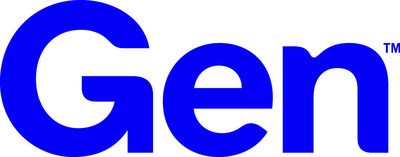Q1/2025 Gen Threat Report Reveals AI-Driven Scams Redefining Cybercrime
Rhea-AI Summary
Positive
- Gen protected over 4 million users from Scam-Yourself Attacks
- People are becoming more vigilant in reporting phishing scams
- Company continues to innovate and adapt its cybersecurity solutions to combat evolving threats
Negative
- 186% surge in breached personal information records
- 466% increase in phishing scam reports
- Fake browser update scams grew 17x compared to previous quarter
- 36% increase in company data breaches
- $4 million stolen through crypto scams related to US presidential inauguration
News Market Reaction
On the day this news was published, GEN declined 0.39%, reflecting a mild negative market reaction.
Data tracked by StockTitan Argus on the day of publication.
Gen Protects Millions of People as Breached Personal Information, Phishing Reports, Fake Browser Update Scams, and Scam-Yourself Attacks Are on the Rise
Key report findings include a
"Online threats are evolving at a startling pace," said Siggi Stefnisson, Cyber Safety CTO at Gen. "Attackers are moving away from broad, indiscriminate campaigns to highly personalized, AI-enhanced deception. Breached data and AI tools are giving cybercriminals just enough personal information and design sophistication to more easily manipulate people. That's why we constantly evolve our cybersecurity solutions to be an interactive partner in fighting scams and to be one step ahead of cybercriminals."
Notable Trends from the Q1/2025 Gen Threat Report:
Data Breaches Escalate
Data breaches are on the rise, with a
Phishing Scams Designed to Bypass Security Filters
Reports of phishing scams rose by a staggering
Telemetry data reveals a growing number of phishing campaigns that abuse dynamic DNS services and subdomain providers, as well as free website builders to create deceptive login pages. This means, that by mimicking legitimate login portals and leveraging trusted domains—like recent scams targeting AT&T, Telstra and Xfinity customers—attackers make phishing attempts harder to detect and more likely to succeed. Many of these campaigns create a sense of urgency for potential victims through emails claiming account issues or prompting people to review sensitive documents. Despite sometimes being poorly written, the use of familiar platforms and subdomain tricks allows these scams to bypass security filters and remain highly effective.
Scam-Yourself Attacks and Fake Browser Updates on the Rise
Gen helped protect over 4 million users from Scam-Yourself Attacks in which individuals, through sophisticated deception, are manipulated into infecting their own devices. In one of the most striking evolutions of this type of scam that we observed this quarter, attackers are using AI-generated personas, deepfake influencers and hired actors. They use these personas to deliver their malicious campaigns. This is primarily done through compromised YouTube accounts, leveraging interactive FakeCAPTCHAs and asking people to verify they are human but instead guiding them to give device permissions or download malware.
Fake Update Scams grew to over 17 times last quarter's level. This type of Scam-Yourself Attack tricks people into installing malware under the guise of browser updates.
Financial Threats Thrive on Mobile and Crypto
Mobile financial threats continued to rise, fueled by increasingly sophisticated tactics that target people directly through their smartphones. Malware, like banking trojans, now exploit accessibility features to overlay fake login pages, stealing sensitive data such as crypto wallet credentials. Combined with an uptick in credit and transaction fraud alerts, there's a growing trend of attackers focusing on mobile devices as gateways to people's financial lives.
Digital currencies continue to be a target for financial threats. CryptoCore executed one of its most successful campaigns in early 2025, hinging on the US presidential inauguration. Attackers leveraged deepfake videos of public figures spread through compromised YouTube accounts to steal close to
Gen is always innovating to stay one step ahead of today's evolving cyberthreats. Our trusted family of brands offers powerful solutions to help keep you safe—LifeLock helps people protect their identity, the Norton Cyber Safety lineup comes equipped with Norton Genie scam protection, and products like Avast Mobile Security offer protection for mobile devices, just to name a few.
To learn more about the latest Cyber Safety tips and solutions, visit our blog at https://www.gendigital.com/blog/insights.
The full Gen Threat Report is available now at https://www.gendigital.com/blog/insights/reports/threat-report-q1-2025
About Gen
Gen (NASDAQ: GEN) is a global company dedicated to powering Digital Freedom through its trusted consumer brands including Norton, Avast, LifeLock, MoneyLion and more. The Gen family of consumer brands is rooted in providing financial empowerment and cyber safety for the first digital generations. Today, Gen empowers people to live their digital lives safely, privately and confidently for generations to come. Gen brings award-winning products and services in cybersecurity, online privacy, identity protection and financial wellness to nearly 500 million users in more than 150 countries. Learn more at GenDigital.com.
Media Contacts:
Brittany Posey-Thomas
Gen
Press@GenDigital.com
Courtney Rowles
Edelman for Gen
Courtney.Rowles@edelman.com
![]() View original content to download multimedia:https://www.prnewswire.com/news-releases/q12025-gen-threat-report-reveals-ai-driven-scams-redefining-cybercrime-302466957.html
View original content to download multimedia:https://www.prnewswire.com/news-releases/q12025-gen-threat-report-reveals-ai-driven-scams-redefining-cybercrime-302466957.html
SOURCE Gen Digital Inc.









